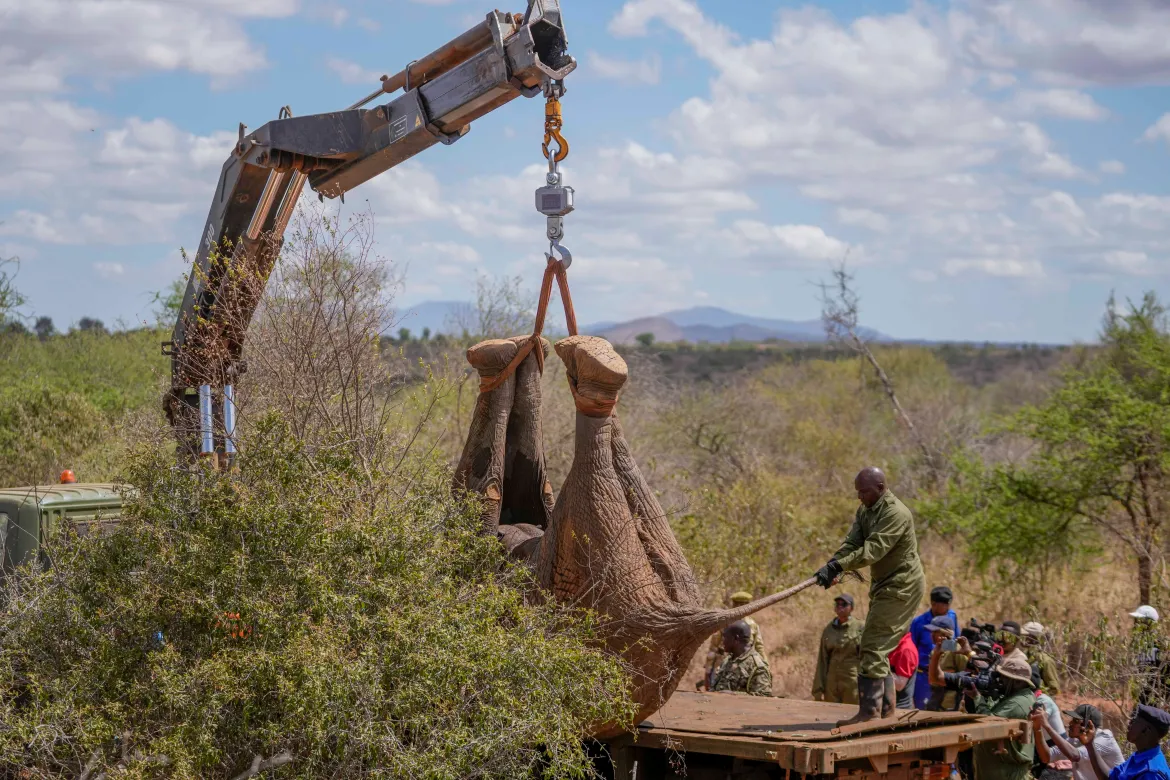Kenya is currently facing an unexpected conservation challenge—the booming elephant population in Mwea National Reserve, located east of Nairobi, has outgrown the park’s capacity, placing pressure on the local ecosystem. Originally designed to support a maximum of 50 elephants, the 42-square-kilometre reserve now houses 156 elephants, more than triple the park’s intended capacity. This remarkable growth, while a testament to successful conservation efforts, has also prompted authorities to begin relocating the elephants to larger parks to restore ecological balance and reduce human-wildlife conflict.
The Kenya Wildlife Service (KWS) has spearheaded the initiative, with Tourism Minister Rebecca Miano overseeing the translocation of five elephants to Aberdare National Park, a 780-square-kilometre park in central Kenya. The relocation process, which began last week, aims to move a total of 50 elephants from Mwea to Aberdare, with 44 elephants successfully relocated as of Monday. The remaining elephants are expected to be moved in the coming days, although an exact timeline for the complete operation has yet to be announced.
KWS Director General Erustus Kanga highlighted that this overpopulation signals a significant conservation victory. “This shows that poaching has been low and the elephants have been able to thrive,” he said, attributing the increase in elephant numbers to Kenya’s robust anti-poaching measures and successful wildlife management policies over the past three decades. Back in 1979, Mwea housed only 49 elephants, but today, the park’s population has far exceeded that number.
The translocation process is complex and highly coordinated, requiring a team of over 100 wildlife specialists, veterinarians, and rangers. Using helicopters and fixed-wing aircraft for aerial surveillance, the team tracks and herds elephants into manageable family units, ensuring that entire family groups are relocated together. Once an elephant is spotted and tranquilized by a veterinarian aboard one of the helicopters, ground teams quickly step in to monitor the animal’s vitals and clear any obstacles in the surrounding vegetation. The massive creatures, each weighing hundreds of kilograms, are then carefully loaded onto specially fitted trucks for the 120-kilometre journey to their new home in Aberdare National Park.
The relocation is not just about managing elephant numbers within the park; it also addresses growing tensions between local communities and wildlife. Due to the overcrowding in Mwea, elephants have been venturing beyond the reserve’s boundaries in search of food, often invading nearby farmlands. Boniface Mbau, a local resident, expressed relief at the government’s intervention: “We are very happy that the government has decided to reduce the number of elephants from the area. Due to their high numbers, they did not have enough food in the reserve, and they ended up invading our farms.”
Human-wildlife conflict has been a recurring issue in areas near national parks, as elephants and other wildlife increasingly encroach on human settlements. The relocation project, which has cost the wildlife agency at least 12 million Kenyan shillings ($93,000), is seen as a critical step in mitigating these conflicts and preserving both the wildlife and livelihoods of nearby communities.













Leave a comment